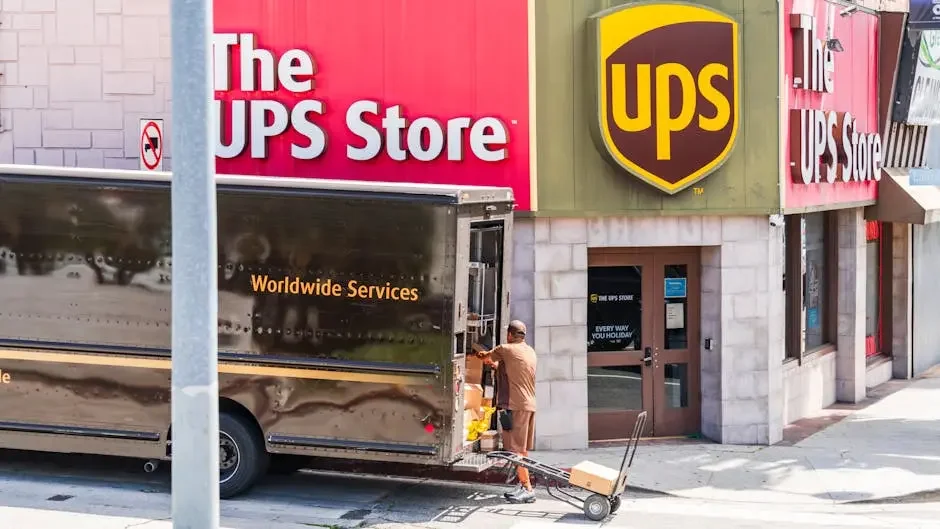Exploring the Impact of Drayage Companies in Los Angeles on Local Businesses
Drayage companies play a significant role in the logistics and supply chain industry, especially in bustling regions like Los Angeles. These companies are pivotal in facilitating goods movement and have far-reaching effects on local businesses. In this blog, we’ll delve into how drayage companies in Los Angeles impact the local economy and influence various business operations.
Understanding Drayage: The Basics
Drayage refers to the transport of goods over short distances, often as part of a longer overall move. In regions like Los Angeles, with its bustling ports and strategic location, drayage companies are essential in streamlining the first and last mile of freight transport. These companies handle the transportation of shipping containers from the ports to nearby warehouses or directly to retailers, ensuring timely delivery of goods across the city. This function is critical in keeping the supply chain moving efficiently, reducing delays and congestion at major shipping hubs.
The term drayage might sound niche, but its functions are pivotal for smooth logistics operations. It essentially bridges the gap between various points in a complex supply chain, acting as a crucial link that keeps the wheels of commerce turning. Typically, drayage services include container trucking and short-distance moving of resources, which are integral in locations like Los Angeles—a city widely recognized for its enormous logistical operations due to the presence of the Port of Los Angeles, one of the busiest in the world.
Economic Contributions of Drayage Companies
Drayage companies significantly contribute to the local economy by facilitating trade, creating numerous job opportunities, and stimulating growth in related industries. Their operations ensure the efficient flow of goods, which is fundamental to sustaining the Southern California economy. As facilitators of trade, they maintain smooth operations at ports, which is crucial in a region known as a hub of international trade. The sheer volume of imports and exports handled requires the specialized skills of drayage operators to maintain the supply chain's integrity, supporting Los Angeles' status as a global commerce center.
In addition to aiding trade, drayage companies help support local employment. With their need for skilled drivers, dispatchers, and logistics coordinators, these companies provide numerous job opportunities in the region, driving local economic growth. This offers stability in the job market, particularly in neighborhoods surrounding the port areas which have historically relied on such industries for livelihoods. By employing a significant portion of the local workforce, drayage companies help support community development and economic resilience against fluctuations in global trade dynamics.
Furthermore, the drayage sector boosts other local industries, like manufacturing and retail, by ensuring their supply chains remain uninterrupted. For instance, timely deliveries managed by these companies allow manufacturers to maintain production schedules and avoid costly downtime. Similarly, retail businesses can keep their shelves stocked, meeting consumer demands and securing consistent revenue streams. The economic impact of these companies, therefore, extends beyond immediate logistics, uplifting various sectors that form the backbone of Los Angeles's economy.
Impact on Local Businesses
Local businesses, especially those dependent on timely deliveries, benefit immensely from the services provided by drayage companies. By ensuring efficient movement of goods, these companies help businesses increase productivity and meet their logistical needs. Retailers, for example, rely on drayage services to receive products swiftly from ports, which allows them to keep inventories updated and meet customer demand without delays. Manufacturing units, on the other hand, depend on the prompt delivery of raw materials to maintain workflow and avoid the high costs associated with production halts.
Drayage companies not only facilitate punctual deliveries but also provide additional flexibility to local businesses in terms of customizing logistics operations. With a diverse range of drayage services tailored to different requirements—such as refrigerated transport for perishable goods or heavy-duty trucks for bulk items—businesses can optimize their supply chain processes. This adaptability is crucial for smaller enterprises that may lack the resources to manage extensive logistics internally, enabling them to compete on a more level playing field with larger corporations.
Beyond just logistical support, drayage companies also contribute to reducing operational costs for local businesses. By outsourcing transportation services, companies can avoid investing in extensive vehicle fleets and the associated maintenance expenses. This savings can be diverted towards other critical business operations, fostering innovation and growth. Additionally, with the expertise of experienced drayage operators, businesses can efficiently navigate regulatory complexities and environmental standards, further streamlining their operations.
Challenges Faced by Drayage Companies
Despite their importance, drayage companies in Los Angeles face several challenges such as strict environmental regulations, rising fuel costs, and traffic congestion. These factors affect their operations and require innovative solutions to overcome. The city’s rigorous emission standards, for example, mandate the use of cleaner, more efficient vehicles—a transition that may strain resources for smaller operators. The need for compliance often necessitates considerable investment in new technologies, such as electric trucks, to meet these environmental expectations.
Rising fuel costs add another layer of complexity to the challenges faced by drayage companies. The reliance on diesel as a primary fuel source significantly impacts their operational costs, with fluctuations in fuel prices directly affecting profitability. Moreover, the increasing traffic congestion in Los Angeles further complicates drayage operations, leading to delays and increased fuel consumption. This requires strategic planning and the implementation of technologies like GPS routing and real-time tracking to optimize transportation routes and minimize inefficiencies.
Moreover, the drayage landscape in Los Angeles is continuously evolving, with increasing competition and expectations for rapid delivery times. In this dynamic environment, companies need to balance service quality with cost-effectiveness, all while adhering to regulatory demands. This balance is crucial for maintaining competitive advantage and ensuring sustainable operations. To thrive amidst these challenges, many drayage companies are investing in driver training programs and advanced scheduling systems to enhance operational efficiency and ensure compliance with industry standards.
The Future of Drayage in Los Angeles
As technology advances, drayage companies are adopting new strategies to enhance efficiency and reduce their environmental impact. Innovations such as electric trucks and automated systems are promising developments for the future of drayage in Los Angeles. The implementation of electric vehicles not only helps in meeting stringent emission standards but also reduces fuel costs, offering a sustainable alternative for drayage operations. Furthermore, the integration of automation in logistics—from smart scheduling systems to automated loading and unloading—promises to maximize productivity and reduce human error.
In addition to technological advancements, the future of drayage in Los Angeles will likely be shaped by increasing collaboration between industry stakeholders and government bodies. Such partnerships are vital to ensuring that the evolving needs of the supply chain are met while supporting initiatives aimed at environmental sustainability. For instance, collaborative efforts could focus on developing shared infrastructure and resources, like charging stations for electric trucks, that would benefit the entire logistics ecosystem.
Ultimately, the success of the drayage industry in the coming years will depend on its ability to adapt to changing market conditions and embrace innovation. By leveraging cutting-edge technologies and fostering strategic collaborations, drayage companies in Los Angeles can continue to play a pivotal role in supporting local businesses and driving economic growth. These efforts not only promise to enhance operational efficiency but will also pave the way for a more sustainable and resilient logistics future in one of the country's most critical trade hubs.
The Crucial Role of Drayage: A Comprehensive Overview
Drayage companies serve as the backbone of Los Angeles' trade activities, significantly influencing local businesses and the overall economic landscape. By enhancing efficiency, creating jobs, and driving technological innovation, they play a critical role in facilitating business growth. Understanding their impact can help businesses leverage their services more effectively, fostering a more resilient and thriving local economy.

